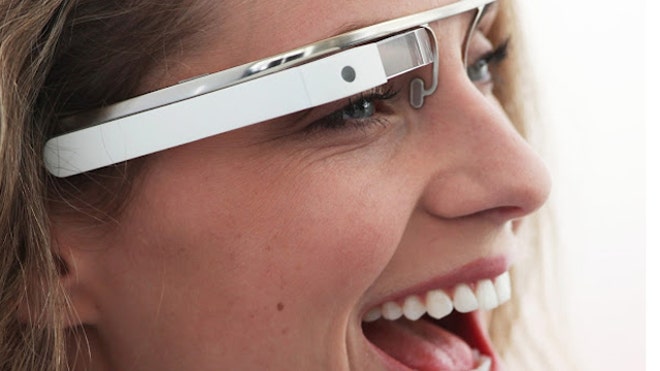Global allies give Mozilla's Firefox OS a mobile foothold
Partners backing the browser-based mobile operating system include phone maker LG Electronics and 18 mobile network operators across the world. The first phones are due in the second quarter.

The Geeksphone Keon, a Firefox OS developer preview phone.
BARCELONA, Spain--Laying the groundwork for its nascent Firefox OS, Mozilla has won over a sizeable list of allies including LG Electronics and China Unicom, and the first phones with the browser-based operating system should arrive in the second quarter of the year.
Mozilla announced today at the Mobile World Congress show here that it's persuaded 18 mobile network operators and four mobile phone makers to back its open-source mobile operating system. That's not enough to unseat the incumbent powers of Google's Android and Apple's iOS slayer, but it is enough to ensure Firefox OS at least isn't extinguished before it even hits the market in the second quarter.
The first phones should arrive in the second quarter of the year, said Mozilla Chief Technology Officer Brendan Eich.
Mozilla won commitments to sell Firefox OS phones from these carriers: America Moovil, China Unicom, Deutsche Telekom, Etisalat, Hutchison Three Group, KDDI, KT, MegaFon, Qtel, SingTel, Smart, Sprint, Telecom Italia Group, Telefonica, Telenor, Telstra, TMN, and VimpelCom. Handset manufacturers on board are Alcatel, ZTE, LG Electronics, and Huawei, with a boost from chipmaker Qualcomm.
Telefonica, Mozilla's first and strongest Firefox OS ally, plans to push the phone aggressively in Latin America for customers who want something more powerful than a feature phone but not as expensive as an iPhone. Its first phones will arrive mid-2013, with new models in late 2013 and 2014, the company said. Telefonica shared the Mobile World Congress stage with Mozilla last year to show the first versions of Firefox OS.That's not necessarily a big foothold in the U.S. market, but Firefox OS is geared chiefly for more-budget-conscious regions. The first markets for the phone will be Brazil, Colombia, Hungary, Mexico, Montenegro, Poland, Serbia, Spain, and Venezuela, Mozilla said.
Mozilla has a version of Firefox for Android, but its performance is limited by the requirement of running on Android's Java-like programming foundation, Eich said. And of course people must install it themselves.
Thus, when it comes to mobile, Firefox OS is more important than Firefox on Android. "I think Firefox OS is the thing to scale up," Eich said.
It won't be easy
Even with its allies, Firefox OS will be a hard sell for many. Inexpensive Android phones and early-model iPhones can be competitive, and even companies like Microsoft and BlackBerry have had only limited success attracting not just customers, but also the developers essential to ensure there are apps those customers can use.
Even with its allies, Firefox OS will be a hard sell for many. Inexpensive Android phones and early-model iPhones can be competitive, and even companies like Microsoft and BlackBerry have had only limited success attracting not just customers, but also the developers essential to ensure there are apps those customers can use.
"It's open source, there's nice technology in there," said Adam Fleming, chief technical officer of mobile software developer Apadmi. "But the business side of my brain says until you get a decent level of saturation, no serious developer is going to be looking at it."

The Geeksphone Peak, a phone for developers using Firefox OS
)
Mozilla has begun recruiting developers, such as a global Firefox OS hack day in January that attracted 2,500 participants, but it recognizes that it has to start by getting phones into the market -- and not just the Geeksphone Keon and Peak designed for Firefox OS developers.
"The first piece of hard work is to get operators and OEMs [handset makers] excited about Firefox OS," said Johnathan Nightingale, vice president of Firefox engineering. "We've only ever succeeded through [building] high-quality products."
Mozilla, a nonprofit organization best known for its widely used Firefox Web browser, isn't like other competitors. It uses its software not to please shareholders but rather to foster openness on the Web. However, Mozilla is hamstrung because Firefox has effectively no presence at all in the fast-growing mobile market.
Firefox isn't allowed on iOS, and it's not the default on Android, which means Mozilla has little leverage in charting the course of the Web. And with walled gardens, patent barriers, and proprietary technology so commonplace in the mobile market, it's precisely the area where Mozilla feels the greatest need to inject some openness.
"The world still needs Mozilla," Eich said.
That's why Mozilla decided to build Firefox OS, which began in 2011 as a project called Boot to Gecko. Like ordinary Firefox, it runs Web apps written in Web languages like HTML, CSS, and JavaScript -- which Eich invented, by the way -- but it also includes phone-specific interfaces for things like monitoring battery life and phone orientation.
Running start with Web programming
The Web programming approach means that, like Google's Chrome OS used on Chromebooks today, developers can get off to a running start. That's especially with many companies like Facebook using Web apps as a way to reach a broad range of devices. Every smartphone has a Web browser, after all.
The Web programming approach means that, like Google's Chrome OS used on Chromebooks today, developers can get off to a running start. That's especially with many companies like Facebook using Web apps as a way to reach a broad range of devices. Every smartphone has a Web browser, after all.
Firefox OS software will be available through the Firefox Marketplace, an open app store that'll include Firefox apps such as Zepto Labs' Cut the Rope, EA Games' Pogo's Poppit, Time Out, SoundCloud, Nokia Here, Twitter, Facebook, Airbnb, and Disney Mobile Games' Where's My Water?
Because there are many differences in browsers -- particularly mobile browsers -- Web programming can be complicated for the mobile market. It's not a single unified "write once, run anywhere" foundation.

The Fira Gran Via in Barcelona, Spain, home of Mobile World Congress
"You get just as much fragmentation across Web applications," Fleming said.
Part of Mozilla's effort is to improve the mobile Web standards for everyone, Eich said. "We're uplifting the whole stack," he said. For example, he said, Samsung is building some phone-specific interfaces into the WebKit project that's used by Google Chrome, Apple Safari, future Opera products, and several other browsers.
Of course, iOS and Android now have expanded from smartphones to tablets. Will Firefox OS follow suit? Not to start with, Eich said.
"Almost all the inbound partner interest was phones first," he said. Likewise, Eich said there's no appetite for a browser-based Firefox OS for PCs. "We've talked to some partners, but it really didn't rise to the top of the heap."
Mozilla today is chiefly funded by search-ad revenue from Google, which the company shares with Mozilla when people use Firefox to initiate searches. It's not yet clear how the mobile effort will generate money for the organization, which though it doesn't care about profits per se does care about paying its 320 engineers and pursuing its open-Web mission.
"Right now we're not worrying about that," Eich said about Firefox OS revenue. "First we'll get the users, then we'll worry about monetization."


















 .
.